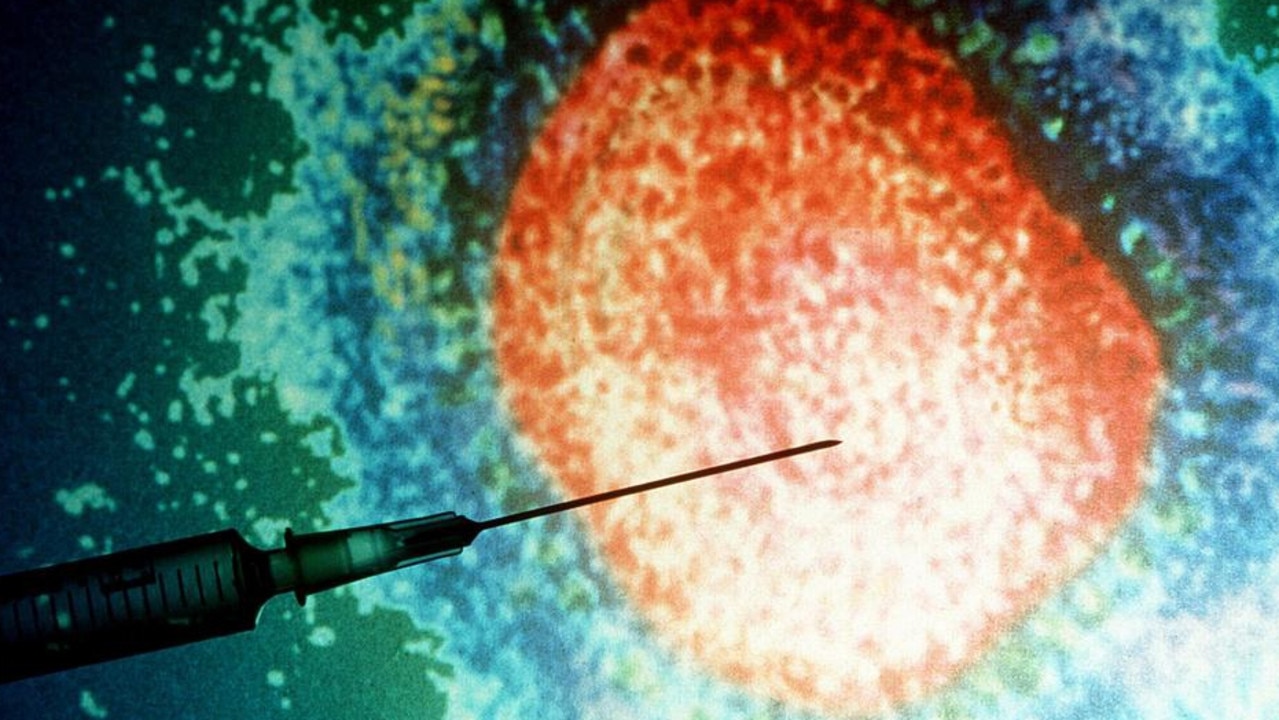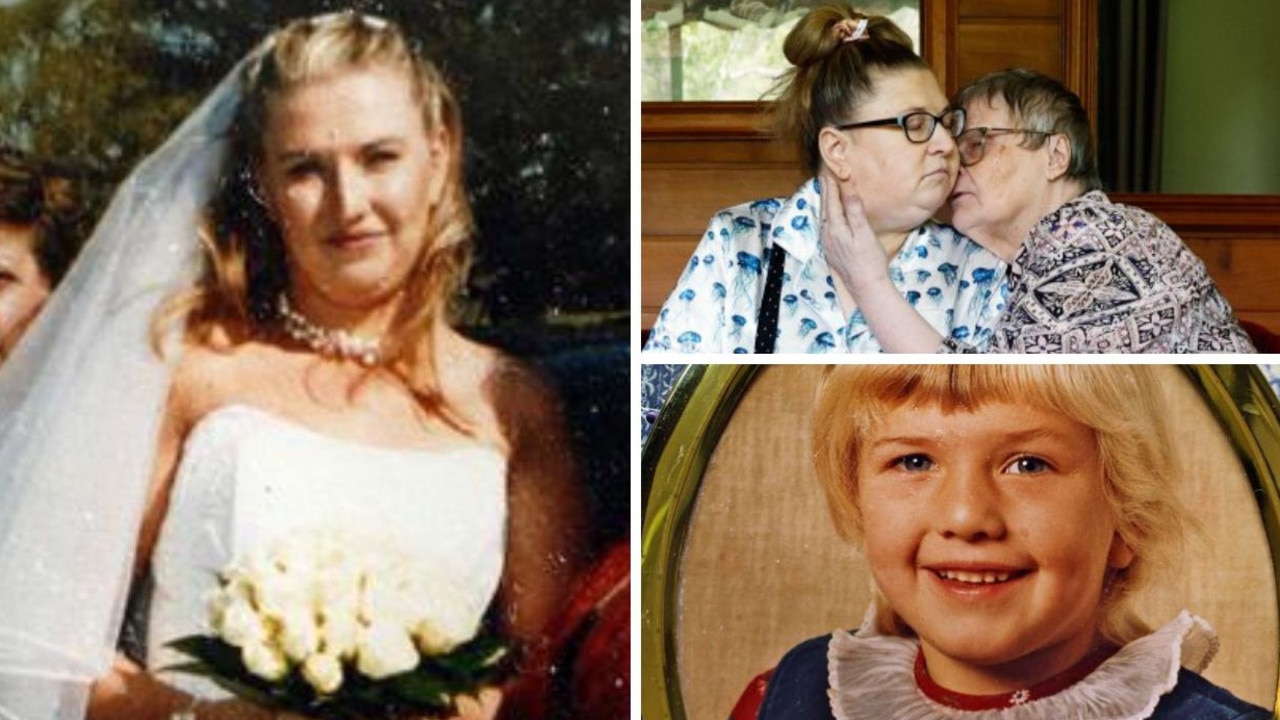AstraZeneca: Europe threatens to seize coronavirus vaccine factories
Europe is in the midst of its “crisis of the century” as a leader threatens to seize vaccine factories as a brawl over the rollout turns ugly.
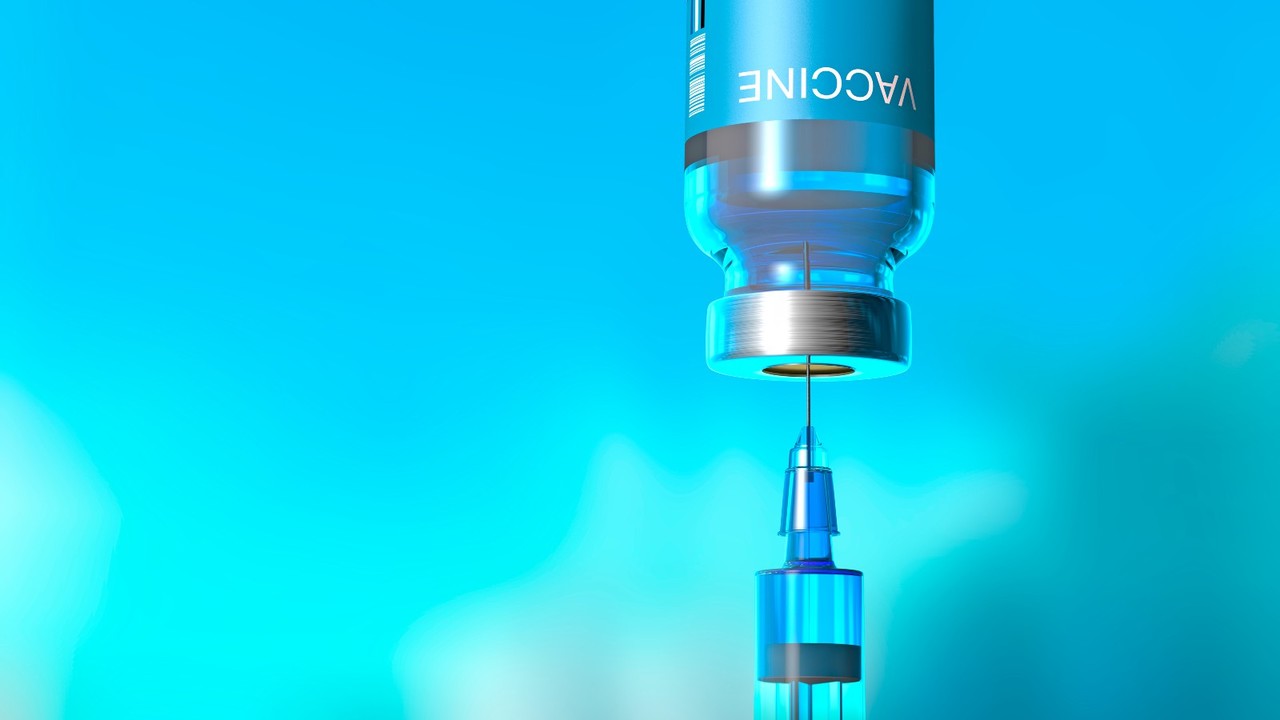
Europe is in the midst of its “crisis of the century” as it threatens to seize AstraZeneca factories and strip the company of its intellectual property rights in a major escalation in tensions over coronavirus vaccines.
European Commission President Ursula von der Leyen refused to rule out the moves overnight – saying “all options are on the table” as the bloc struggles to vaccinate its 450 million citizens amid a third COVID wave.
“We are in the crisis of the century,” she said.
“I’m not ruling out anything for now because we have to make sure that Europeans are vaccinated as soon as possible.
“Human lives, civil liberties and also the prosperity of our economy are dependent on the speed of vaccinations.”
RELATED: ‘Complete mess’: Aus vaccine rollout slammed
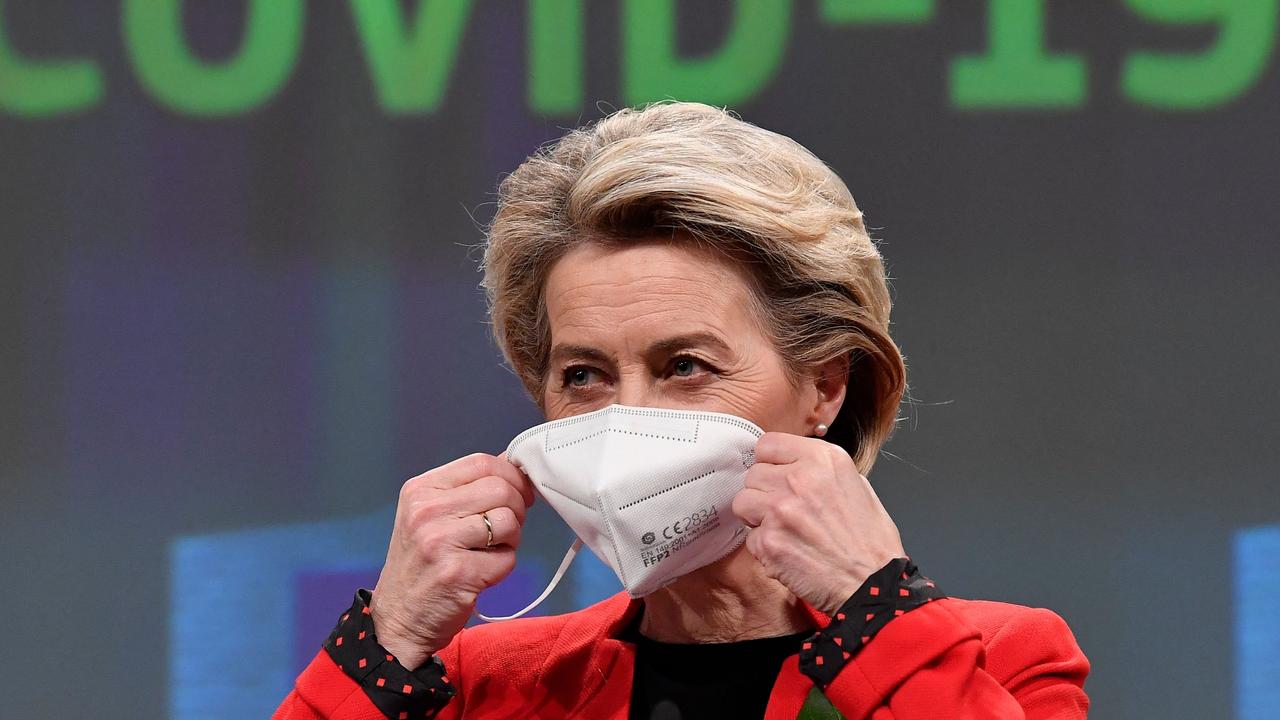
Europe’s vaccination campaign has struggled to get off the ground due to delayed deliveries, as well as a bitter row with pharma giant AstraZeneca and fears over the safety of its vaccine.
The EU has already set up special oversight of vaccine exports in which manufacturers contracted to supply Europe must declare if they intend to export doses outside the bloc.
Most of the EU’s worry is over Britain, home of the AstraZeneca vaccine, where the inoculation campaign has progressed at a much faster pace than in the EU.
Brussels has accused London of operating a de facto export ban to achieve its vaccine success, a claim furiously denied by Prime Minister Boris Johnson’s government.
But Ms von der Leyen on Wednesday said the EU was “still waiting” for its AstraZeneca orders to come out of “two sites in the UK”, despite the fact that 10 million doses from other manufacturers had entered Britain from the EU.
RELATED: Australia acts after ‘desperate call’
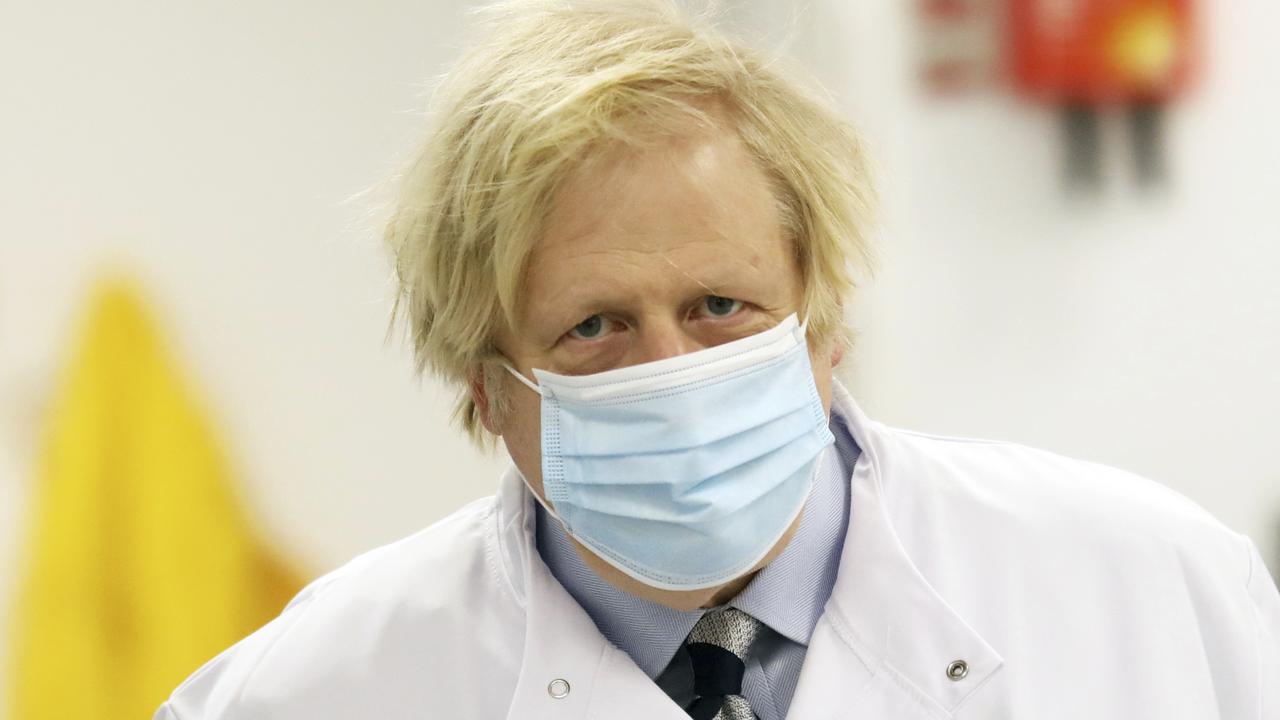
“This is an invitation to show us that there are also doses from the UK coming to the European Union, so that we have reciprocity,” she said.
In its response, Britain said Brussels had previously pledged to allow drugmakers to deliver on their contracts.
“We expect the EU to continue to stand by its commitment,” a UK spokesman added.
This comes as coronavirus cases have been rising across Europe in recent weeks — from 200 per million in mid-February to 270 per million last weekend — with the spread of new variants of the COVID-19 virus being blamed for much of the increase.
Several countries are now set to impose strict new lockdown measures in the next few days.
Most regions in Italy, including Rome and Milan, are now classified as high-risk and there will be a three-day national lockdown over Easter.
RELATED: Nations where COVID cases are rising
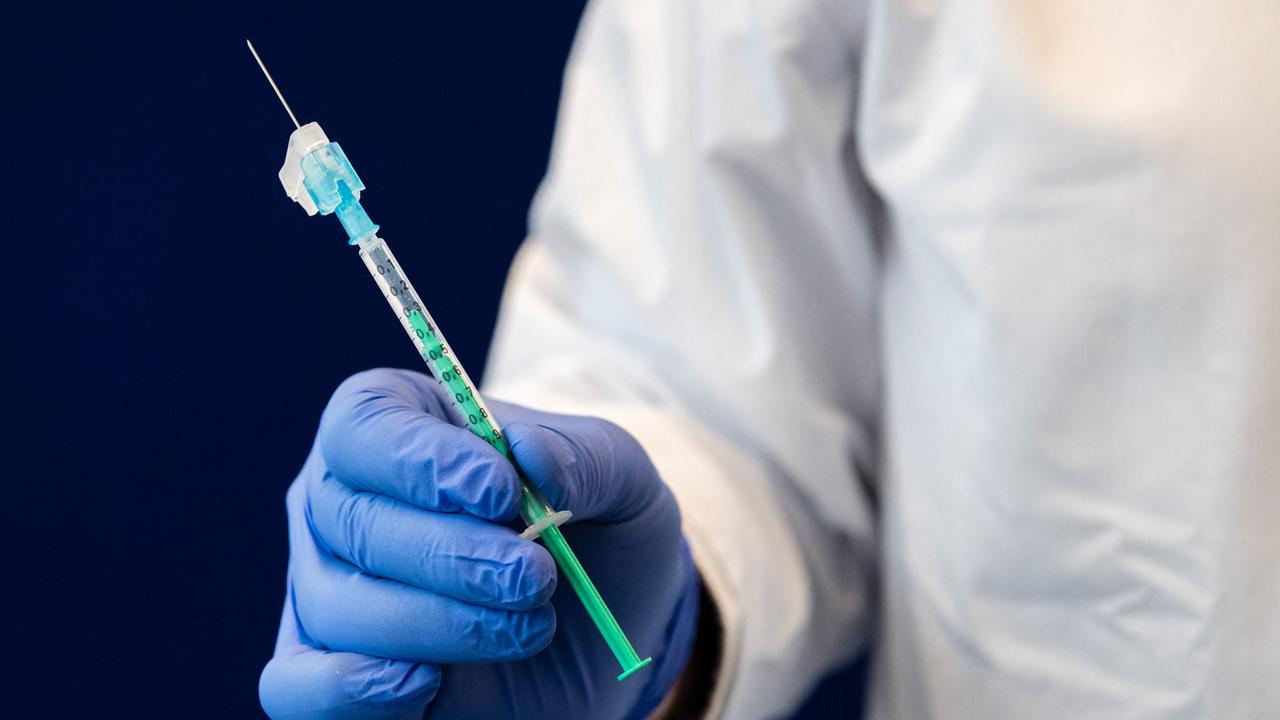
France is resisting calls for another lockdown as the situation in the nation’s hospitals is worsening.
Those intensive care units edged higher by 57 to 4,127, while emergency resuscitation units were running at nearly 82 per cent capacity, the highest since late November.
The French government has so far resisted pressure from health experts to impose a new, third lockdown in the face of rising case numbers.
Instead it has imposed a 6pm nationwide curfew and weekend lockdowns in two regions struggling to contain outbreaks while big shopping centres have been required to close.
At the same time, in Germany on March 14, the 14-day average COVID-19 positive case numbers rose 26 per cent, to more than 17,000.
Last week, Lothar Wieler, the president of the Robert Koch Institute which handles pandemic data in the country, warned of “the beginning of a third wave”.
Across much of Eastern Europe, too, in countries such as Hungary, Slovakia, Poland and the Czech Republic, COVID-19 infection figures are soaring.
WHAT DOES THIS ALL MEAN FOR AUSTRALIA?
Australia has secured 53.8 million doses of the AstraZeneca vaccine, and we’ve already seen issues with Italy blocking the exports here to vaccinate its own population.
However, the vast majority of Australia’s doses will be made here — with 50 million doses will be manufactured by CSL in Australia in monthly batches.
The ability to manufacture the vaccine here has huge advantages in terms of the rollout of the vaccine because Australia is not reliant on the vaccine being shipped from overseas or getting lost in a “queue” with other countries.
It also means we will be able to send vaccines to nearby nations that may desperately need them.
Yesterday, it was announced that the federal government will request a million AstraZeneca doses originally meant for use onshore be diverted to Papua New Guinea, as the island nation deals with an out-of-control second COVID-19 wave.
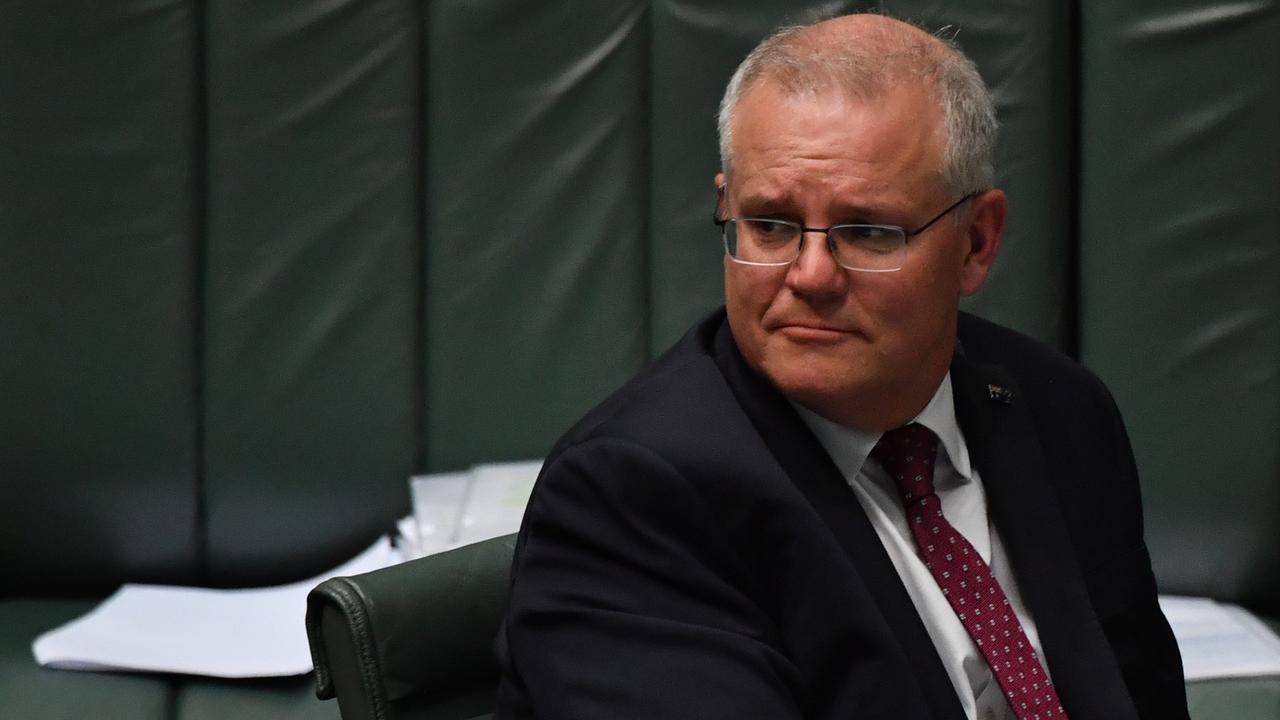
Prime Minister Scott Morrison has unveiled a range of measures aimed at supporting PNG through the outbreak, which he said posed “very real risks” to northern Australia, including suspending flights to the country from Cairns.
The federal government has requested doses of the AstraZeneca vaccine ordered from Europe be sent to PNG instead and will gift 8000 doses of its COVID-19 vaccine stocks to support PNG frontline health workers from next week.
Personal protective equipment, including masks and sanitiser, will also be sent to the island nation.
– with AFP



